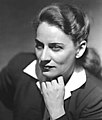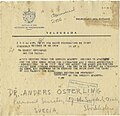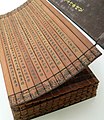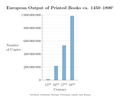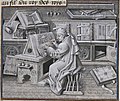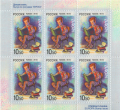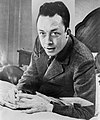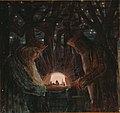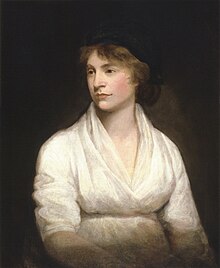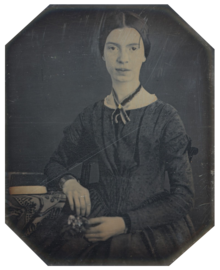Portal:Literature
Introduction

Literature is any collection of written work, but it is also used more narrowly for writings specifically considered to be an art form, especially novels, plays, and poems. It includes both print and digital writing. In recent centuries, the definition has expanded to include oral literature, much of which has been transcribed. Literature is a method of recording, preserving, and transmitting knowledge and entertainment. It can also have a social, psychological, spiritual, or political role.
Literary criticism is one of the oldest academic disciplines, and is concerned with the literary merit or intellectual significance of specific texts. The study of books and other texts as artifacts or traditions is instead encompassed by textual criticism or the history of the book. "Literature", as an art form, is sometimes used synonymously with literary fiction, fiction written with the goal of artistic merit, but can also include works in various non-fiction genres, such as biography, diaries, memoirs, letters, and essays. Within this broader definition, literature includes non-fictional books, articles, or other written information on a particular subject. (Full article...)
General images -
Jonathan Strange & Mr Norrell is the 2004 first novel by British writer Susanna Clarke. An alternative history set in 19th-century England around the time of the Napoleonic Wars, it is based on the premise that magic once existed in England and has returned with two men: Gilbert Norrell and Jonathan Strange. Centring on the relationship between these two men, the novel investigates the nature of "Englishness" and the boundaries between reason and unreason, Anglo-Saxon and Anglo-Dane, and Northern and Southern English cultural tropes/stereotypes. It has been described as a fantasy novel, an alternative history, and a historical novel. It inverts the Industrial Revolution conception of the North/South divide in England: in this book the North is romantic and magical, rather than rational and concrete.
The narrative draws on various Romantic literary traditions, such as the comedy of manners, the Gothic tale, and the Byronic hero. The novel's language is a pastiche of 19th-century writing styles, such as those of Jane Austen and Charles Dickens. Clarke describes the supernatural with mundane details. She supplements the text with almost 200 footnotes, outlining the backstory and an entire fictional corpus of magical scholarship. The novel was well received by critics and reached number three on the New York Times best-seller list. It was longlisted for the 2004 Man Booker Prize and won the 2005 Hugo Award for Best Novel.
Selected excerpt
| “ | The pedigree of honey Does not concern the bee ; A clover, any time, to him Is aristocracy. |
” |
| — Emily Dickinson, "The pedigree of Honey" | ||
More Did you know
- ... that William Blake's character Spectre, which represents unchanging reason in his spiritual mythology, may have been inspired by the poet William Cowper?
- ... that the Pingyao Zhuan, a shenmo fantasy novel written in the Ming Dynasty, is loosely based on a historical revolt?
- ... that the novels of Jane Austen became popular with the public only after the publication of A Memoir of Jane Austen in 1869?
- ... that, as a prize for having written "O Armatolos", Bulgarian poet Grigor Parlichev was awarded a laurel wreath by king Otto of Greece?
- ... that the Goosebumps novella One Day at Horrorland was adapted into a two-part television episode, two video games, a comic, and a book series?
Selected illustration
Did you know (auto-generated) -

- ... that a study of Anglo-Saxon literature begun by Bernard Pitt in 1914 was completed by a colleague after Pitt was killed in the First World War?
- ... that Romanian literary scholar Dan Simonescu, who edited a chronicle dealing with the reign of Michael the Brave, had to delete any mention of Michael having "all the Jews murdered"?
- ... that a poem by Moses da Rieti includes an encyclopedia of the sciences, a Jewish paradise fantasy, and a post-biblical history of Jewish literature?
- ... that literary critic Qian Xingcun brought several Communist writers into the Shanghai film industry?
- ... that in the Forum of Augustus in Rome, elogia were hung on statues of commanders and Augustus's ancestors?
- ... that despite a career writing queer literature, Chen Xue's 2019 novel Fatherless City had a "putatively straight premise"?
Today in literature
- 1661 - Antoine Gérard de Saint-Amant, French poet died
- 1785 - Johan Herman Wessel, Norwegian poet died
- 1894 - Christina Rossetti, English poet died
- 1924 - Carl Spitteler, Swiss writer died
- 1926 - Rainer Maria Rilke, Austrian writer died
- 1937 - Don Marquis, American author died
- 1957 - Paul Rudnick, American screenwriter/playwright born
- 1960 - Eden Phillpotts, British writer died
- 1980 - Nadezhda Mandelstam, Russian writer died
Topics
| Literature: | History of literature · History of the book · Literary criticism · Literary theory · Publishing |
| By genre: | Biography · Comedy · Drama · Epic · Erotic · Fable · Fantasy · Historical fiction · Horror · Mystery · Narrative nonfiction · Nonsense · Lyric · Mythopoeia · Poetry · Romance · Satire · Science fiction · Tragedy · Tragicomedy · more... |
| By region: | African literature · Asian · European · Latin American · North American · Oceanic |
| By era: | Ancient literature · Early medieval · Medieval · Renaissance · Early Modern · Modern |
| By century: | 10th century in literature · 11th · 12th · 13th · 14th · 15th · 16th · 17th · 18th · 19th · 20th · 21st |
| Recent: | 2018 in literature· 2017 · 2016 · 2015 · 2014 · 2013 · 2012 · 2011 · 2010 · 2009 · 2008 · 2007 · more... |
Categories
Related portals
| Concepts: | |
| Genres: | |
| Religions: |
Things you can do
Related WikiProjects
WikiProjects related to literature:
| Concepts: | Biographies · Books · Comics · Magazines · Manga · Novels · Poetry · Short stories · Translation studies |
| Genres: | Alternate history · Children's literature · Crime · Fantasy · Horror · Mythology · Romance · Science fiction |
| Authors: | Honoré de Balzac · Roald Dahl · William Shakespeare |
| Series: | Artemis Fowl · Chronicles of Narnia · Discworld · Harry Potter · His Dark Materials · Hitchhiker's Guide to the Galaxy · Inheritance Cycle · James Bond · King Arthur · Middle-earth · Percy Jackson · Redwall · A Series of Unfortunate Events · Shannara · Sherlock Holmes · A Song of Ice and Fire · Star Wars · Sword of Truth · Twilight · Warriors · Water Margin · Wizard of Oz |
| Regions: | Australian literature · Indian literature · Persian literature |
Associated Wikimedia
The following Wikimedia Foundation sister projects provide more on this subject:
-
Commons
Free media repository -
Wikibooks
Free textbooks and manuals -
Wikidata
Free knowledge base -
Wikinews
Free-content news -
Wikiquote
Collection of quotations -
Wikisource
Free-content library -
Wikiversity
Free learning tools -
Wiktionary
Dictionary and thesaurus



